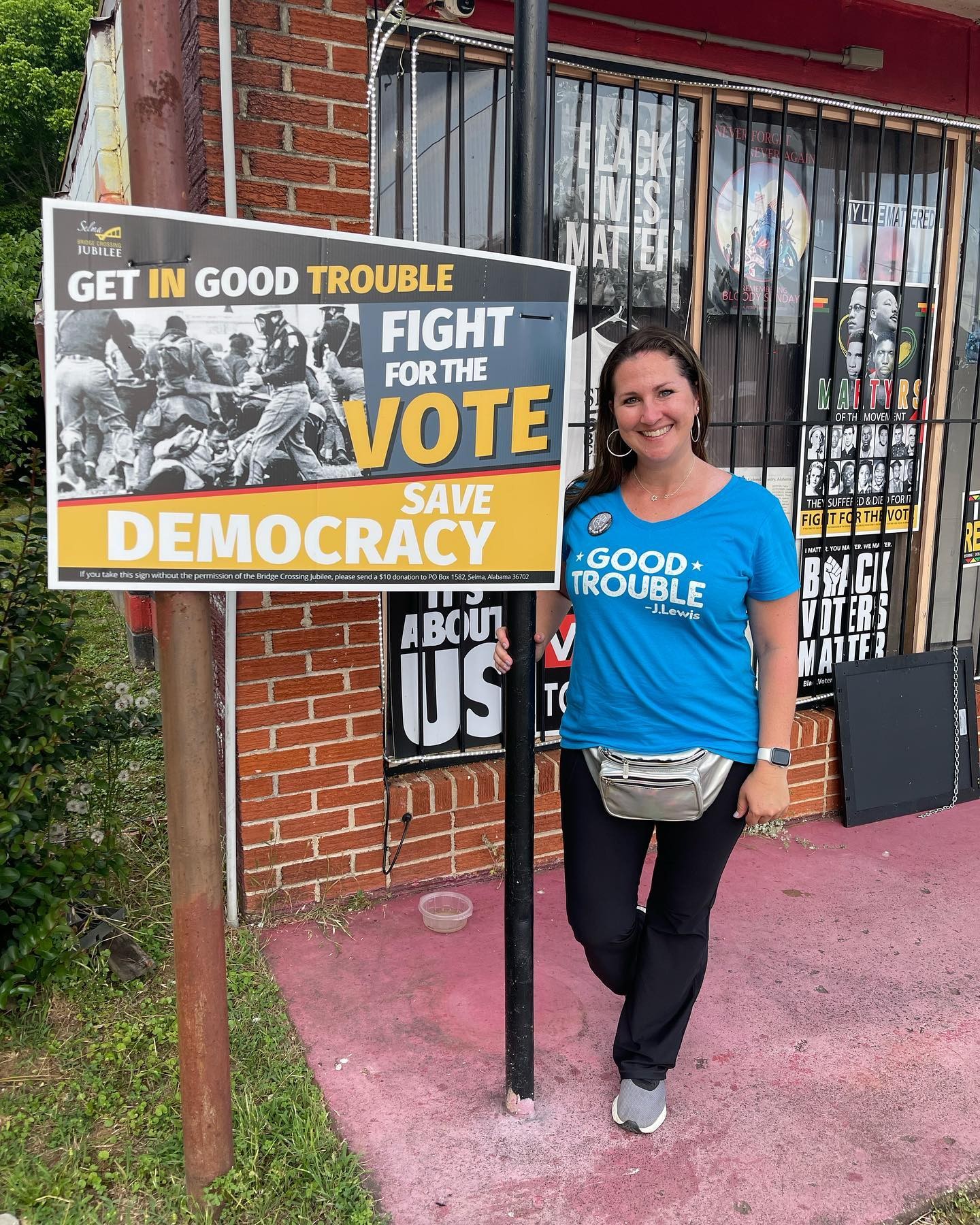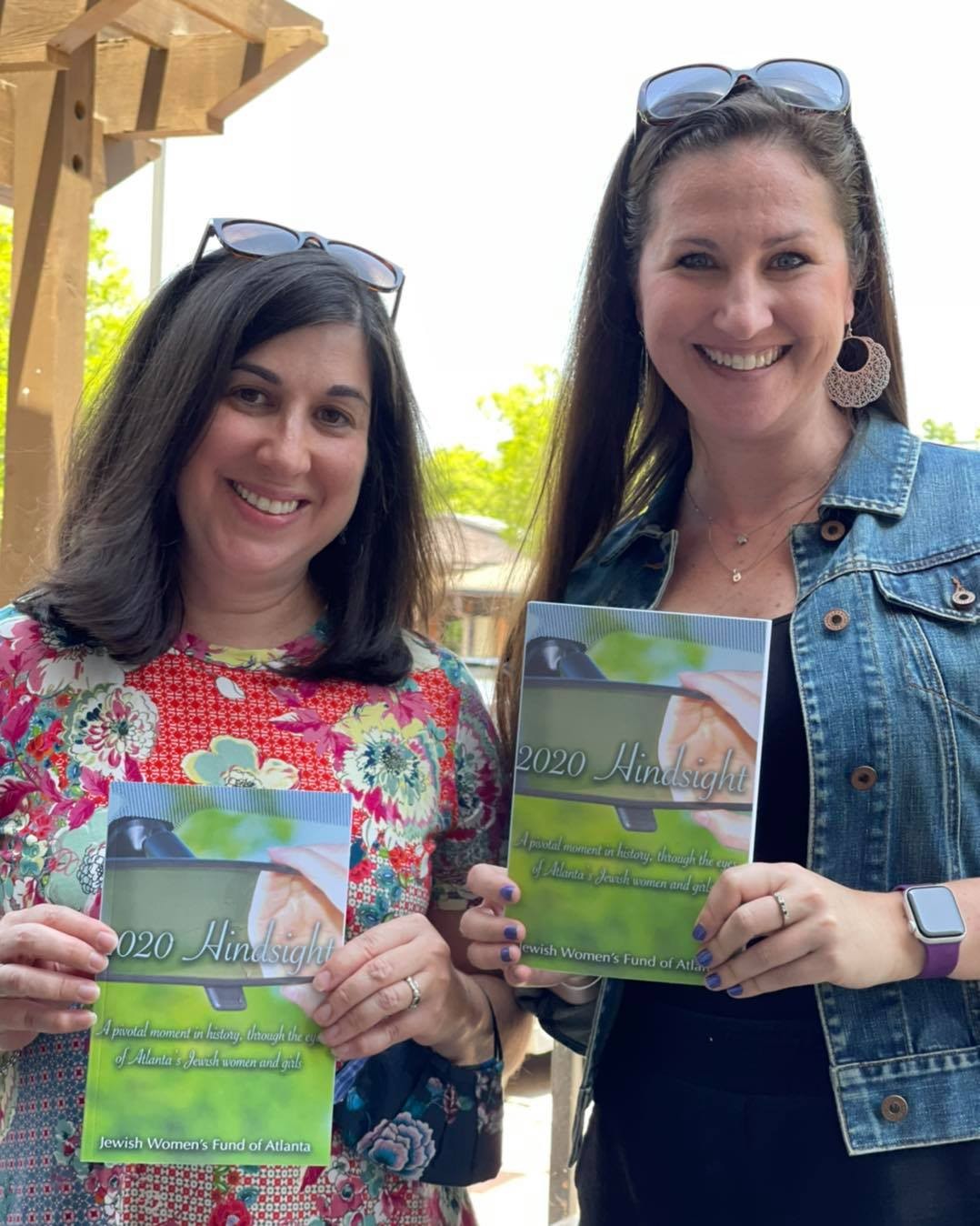We recently connected with Rachel Ezrine Wasserman and have shared our conversation below.
Rachel , thanks for joining us, excited to have you contributing your stories and insights. What was one of the most important lessons you learned in school? Why did that lesson stick with you?
There is a parable that tells the tale of two people walking by a river when they notice babies floating down the river. One starts grabbing the babies out of the river, while the other runs upstream. The first asks, “Where are you going?! We have to save these babies,” and the other replies, “I’m going to see who’s throwing babies in the river.”
When my professor at Columbia University School of Social Work told us this story, it struck a chord with me and set me on my path away from direct service and toward systemic social change work and community organizing. Until that point, I had been working as a therapist at a community mental health center, and before that as a case worker for teenagers dually diagnosed with mental illness and substance abuse disorders. I had been wavering on whether or not to pursue clinical practice as my primary focus, and learning this parable helped me make the decision to study the inner workings of nonprofits and programs, which set me on the career trajectory I am on today. By taking a systems approach, we are able to prevent more proverbial babies from being thrown in the river. In my current role, that means ending gender-based violence, promoting economic equality, and addressing the Superwoman Complex so that it doesn’t get passed onto future generations.


Rachel , love having you share your insights with us. Before we ask you more questions, maybe you can take a moment to introduce yourself to our readers who might have missed our earlier conversations?
I was driven to my role as the Chief Executive Officer of Jewish Women’s Fund of Atlanta (JWFA) by my passion for gender equity and social justice. I joined JWFA in August 2012 when it was still in its infancy, and I have used my vast non-profit expertise to propel JWFA to unforeseen heights, including overseeing its first community study and subsequent signature grant dedicated to lifting up Jewish women and girls in Atlanta. Under my leadership, JWFA has developed an international reputation for being a funder of innovative programs promoting social change and gender justice.
Jewish Women’s Fund of Atlanta promotes social change and creates positive opportunities for Jewish women and girls. Through our work, we support, elevate, and advance women. We are a force for change, addressing gender inequality in the Jewish community. We harness the power of philanthropy, collective wisdom, and women’s voices to advocate for mental health and equity while fighting against economic injustice, violence against women, and gender-based harassment and discrimination in workplaces.
I received my bachelor’s from Brown University in Psychology and Judaic Studies, my master’s in Social Work from Columbia University, and my master’s in Jewish Studies from The Jewish Theological Seminary of America, where I specialized in Jewish Communal Service. I am a proud alumna of AVODAH: The Jewish Service Corps, which was the official launch of my career as a Jewish communal professional (although my passion for social justice can be traced back to age 12). Though I’ve lived in Atlanta since 2012, a horse farm in Lexington, Kentucky will always be my true home.


How’d you build such a strong reputation within your market?
At this point, I have worked in the Jewish communal service world for long enough that I have built relationships with colleagues, donors, grantees, and community members throughout Atlanta, Israel, and across the US. I think it takes time, trust, and accountability to build solid relationships with people. I also always try to operate from a place of integrity so people know they can count on my word. Finally, I approach my professional relationships with compassion and a desire to remove traditional hierarchies and power dynamics between those who have funding and those who seek funding.
How about pivoting – can you share the story of a time you’ve had to pivot?
Like everyone, we had to pivot in 2020 (and beyond!) when the pandemic began. We were scheduled to have a major fundraising event in April 2020, and we were in the middle of our grant cycle, so immediate accommodations had to be made to change course. In the end, we executed more programming, allocated more grants, and raised more money than we had ever planned, so it worked out. I never would have wished for a global pandemic, and the effects were disastrous and aren’t yet over, but we made did our best to make lemonade out of lemons.
Contact Info:
- Website: jwfatlanta.org
- Instagram: @jwfatlanta
- Facebook: @jwfatlanta
Image Credits
Beth Intro Photography Chelsea Patricia Photography


